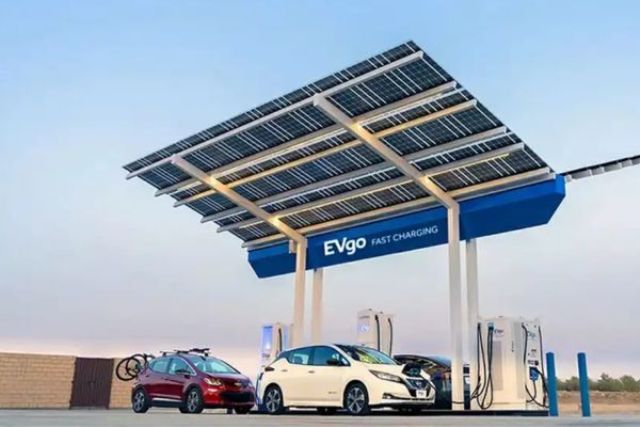The U.S. Senate’s decision to end key electric vehicle (EV) tax credits has sent shockwaves through the EV industry, raising concerns about its long-term viability and competitiveness.
The proposed cut, which would eliminate the $7,500 credit for new EVs and the $4,000 credit for used EVs after September 30, threatens to undercut consumer demand and stall domestic clean transportation momentum.
Industry advocates, including the Electrification Coalition and Calstart, warn that this move could significantly weaken the U.S. position in the global EV race, effectively handing an advantage to China.
The tax credits have been pivotal in boosting EV adoption and catalyzing billions in manufacturing investments across the country. Removing them now, at a critical juncture in the energy transition, risks reversing progress and deterring further private investment, Reuters news report said.
The bill passed by the Senate pulls the rug out from under more than $157 billion in manufacturing investments catalyzed by the EV tax incentives passed just three years ago. This bill jeopardizes American manufacturing jobs, ensures U.S. advanced manufacturing continues to trail China, and delays the deployment of more affordable and efficient electric transportation, Electrification Coalition Vice President of Policy Anne Blair said in a news statement.
A report in the EV Jobs Hub said there are 550 manufacturing facilities in the United States supporting the EV industry, which employ at least 228,000 workers and have brought more than $207 billion in investment into the U.S. economy.
Repealing the IRA undermines the business case for many of these projects and directly imperil 130,000 American auto manufacturing jobs by 2030, according to independent analysis by the International Council on Clean Transportation.
Calstart CEO John Boesel said: “In the past two and a half years, thousands of companies invested more than $125 billion in U.S. clean transportation manufacturing — investments made in good faith, based on the promise of stable federal policy through 2032 under the Inflation Reduction Act. Today’s vote breaks that commitment and puts American workers and manufacturers at a disadvantage, just as global competitors accelerate the transition toward a zero-emission transportation economy.”
The EV sector has also voiced fears about the potential loss of thousands of American jobs, especially as foreign competitors increase their support for clean mobility. Ford, for instance, warned that the elimination of incentives could jeopardize its $3 billion battery plant in Michigan, which is already 60 percent complete and expected to employ 1,700 people.
While some automakers, including members of the Alliance for Automobile Manufacturers, welcomed revisions to battery production tax credits — particularly measures that exclude Chinese firms — the broader EV industry remains alarmed. They argue that weakening federal support undermines efforts to scale up domestic battery and vehicle production.
Moreover, the Senate bill includes provisions easing Corporate Average Fuel Economy (CAFE) standards, effectively incentivizing the continued production of gas-powered vehicles. This shift undercuts federal climate goals and could allow automakers to avoid penalties like those previously paid by Stellantis and GM for failing to meet fuel economy targets.
Overall, the rollback of EV tax credits — coupled with relaxed fuel economy rules — poses a major setback to the U.S. electric mobility push. It raises doubts about the nation’s commitment to a zero-emission future and its ability to compete with global EV leaders.
Baburajan Kizhakedath

